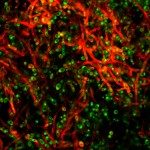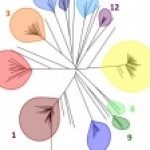Lien vers Pubmed [PMID] – 15450203
Infect. Genet. Evol. 2004 Sep;4(3):243-52
Multilocus sequence typing of Candida albicans: strategies, data exchange and applications. Bougnoux, M.-E., Aanensen, D.M., Morand, S., Théraud, M., Spratt, B.G., and d’Enfert, C. Infection, Genetics and Evolution. C. albicans is a commensal of humans and animals but is also the main fungal pathogen of humans, ranking fourth among the microorganisms responsible for hospital-acquired bloodstream infections. Information on the genetic diversity and dynamics of the C. albicans population and on the characteristics of C. albicans strains causing invasive infections in immunocompromised patients is important in order to adapt prevention policies. Important results in this field have been obtained using the Ca3 fingerprinting probe. Recently, multilocus sequence typing (MLST) based on the sequencing of 6-8 selected house-keeping genes and identification of polymorphic nucleotide sites has been introduced for the characterization of C. albicans isolates. Combination of the alleles at the different loci results in unique diploid sequence types (DSTs) that can be used to discriminate strains. MLST has now been successfully applied to study the epidemiology of C. albicans in the hospital as well as the diversity of C. albicans isolates obtained from diverse ecological niches including human and animal hosts. Furthermore, MLST data for C. albicans are available in a public database (http://calbicans.mlst.net) that provides a new resource to evaluate the worldwide diversity of C. albicans and the relationships of isolates identified at various locations.



